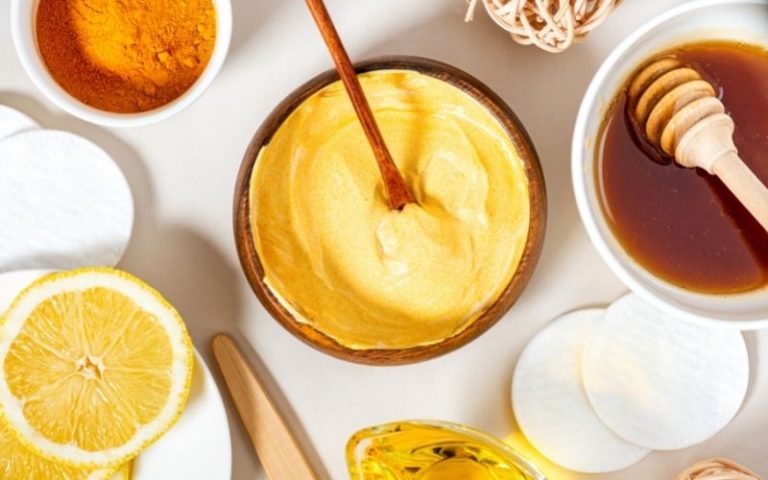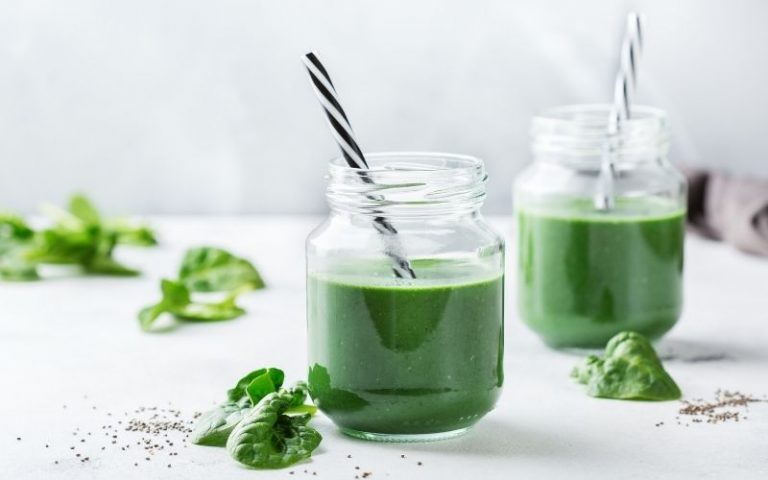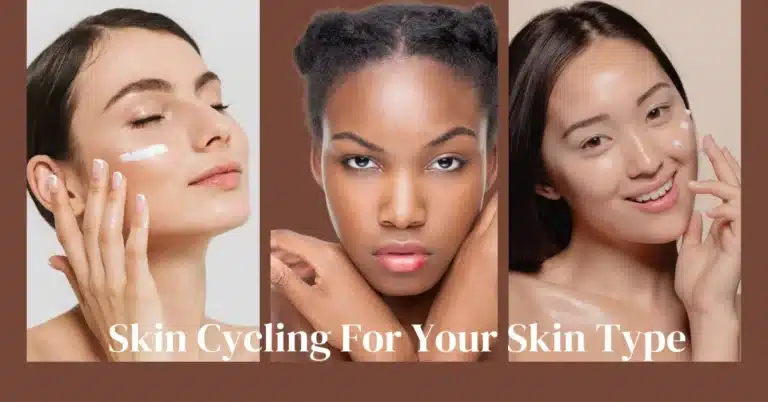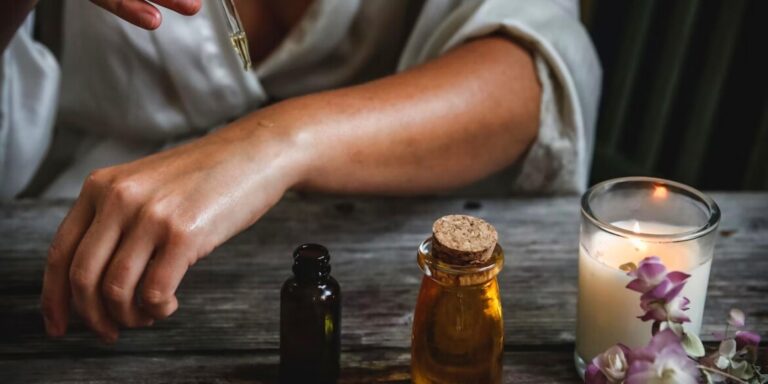Common Allergens In Cosmetics
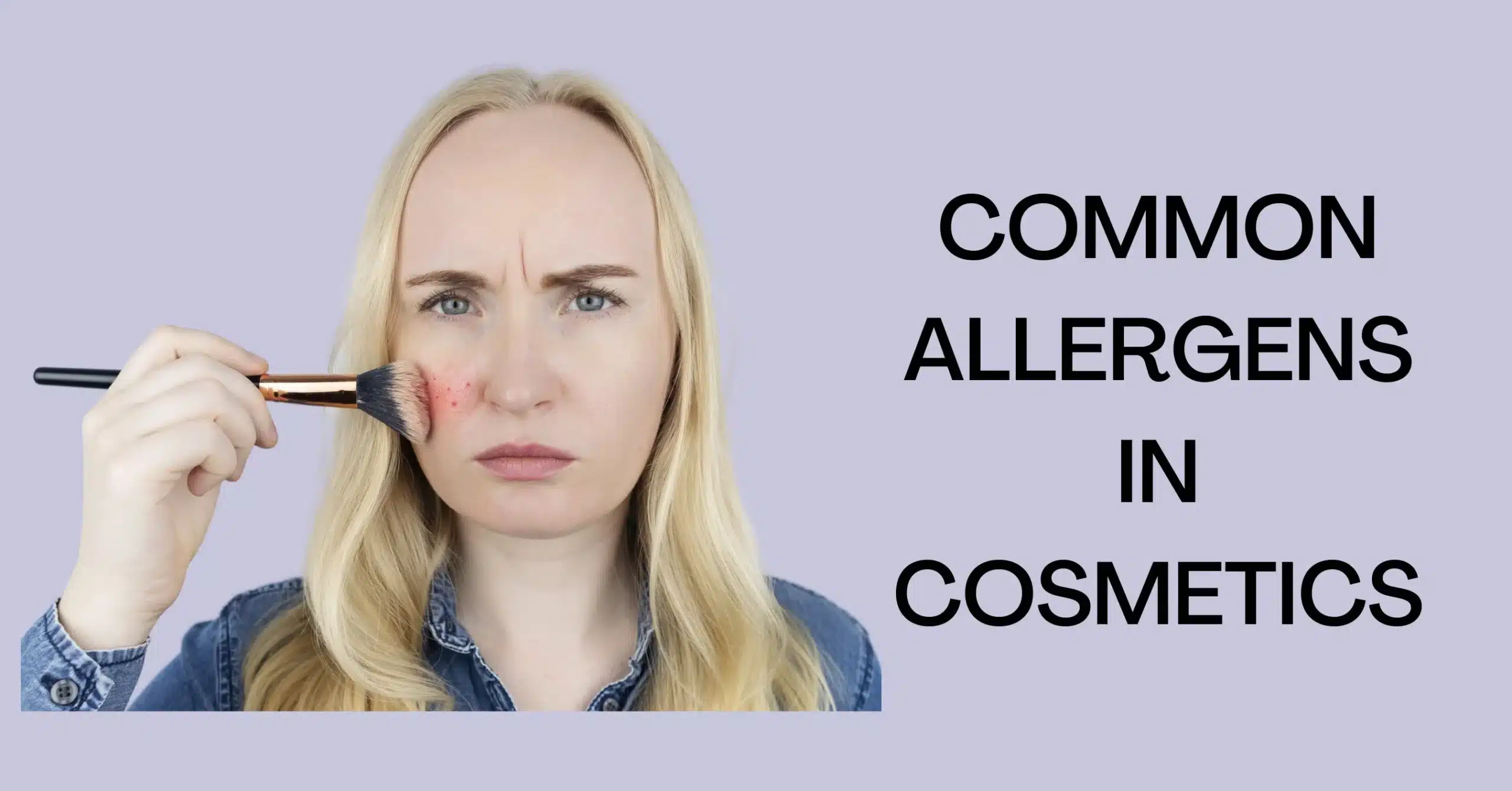
When it comes to cosmetic allergies, understanding the potential allergens present in cosmetics is crucial. These allergens are substances that can trigger allergic reactions in susceptible individuals. Allergic reactions to cosmetics can range from mild irritation to severe dermatitis, making it crucial to understand the ingredients that may trigger such responses.
In this discussion, we will delve into the world of allergens in cosmetics, exploring their sources, common allergenic ingredients, labeling regulations, and practical tips to minimize the risk of allergic reactions.
Let us embark on this journey to gain insights that will empower us to make informed decisions regarding our beauty regimen.
TABLE OF CONTENTS
- UNDERSTANDING ALLERGEN-FREE COSMETICS
- COMMON ALLERGENS IN COSMETICS
- THE IMPACT OF ALLERGENS ON SENSITIVE SKIN
- BENEFITS OF USING ALLERGEN-FREE COSMETICS
- HOW TO IDENTIFY ALLERGEN-FREE COSMETICS
- ALLERGEN-FREE COSMETIC BRANDS TO CONSIDER
- TIPS FOR INCORPORATING ALLERGEN-FREE COSMETICS INTO YOUR BEAUTY ROUTINE
- DIY ALLERGEN-FREE COSMETIC RECIPES
- THE FUTURE OF ALLERGEN-FREE COSMETICS
- THE TAKEAWAY
UNDERSTANDING ALLERGEN-FREE COSMETICS
When it comes to cosmetics, understanding the concept of allergen-free products is essential. Allergen-free cosmetics are specifically formulated to be free from common ingredients that are known to cause allergic reactions.
These reactions can range from mild irritations to more severe symptoms like redness, itching, swelling, and even hives. By eliminating these potential allergens, allergen-free cosmetics provide a safer and more comfortable option for those with sensitive skin or allergies.
It’s important to note that allergens can vary from person to person, so what may cause a reaction in one individual may not affect another. However, there are certain ingredients that are commonly known to trigger allergic reactions in many people. These ingredients are often found in mainstream cosmetics and can be easily avoided by opting for allergen-free alternatives.
To ensure that you are making informed choices, it’s crucial to familiarize yourself with the common allergens in cosmetics and their potential impact on your skin. By doing so, you can take proactive steps to avoid these ingredients and minimize the risk of experiencing allergic reactions.
COMMON ALLERGENS IN COSMETICS
Common allergenic ingredients to watch out for in cosmetics can vary, as different individuals may have varying sensitivities and allergies. However, there are several well-known ingredients that have been identified as frequent culprits in triggering allergic reactions. By being aware of these ingredients, you can make more informed choices when selecting cosmetic products.
Here are some of the most common allergens to watch out for:
1. Fragrance Allergens
Fragrances are a common cause of allergic reactions in cosmetics. Ingredients like limonene, linalool, coumarin, and geraniol, which are often used to provide pleasant scents, can be potential triggers for sensitive individuals.
To avoid fragrance-related allergies, consider opting for fragrance-free or hypoallergenic products.
2. Preservatives
Preservatives play a crucial role in preventing microbial growth in cosmetics, but some preservatives can also cause allergic reactions. Formaldehyde-releasing preservatives, such as quaternium-15 and diazolidinyl urea, have been associated with skin allergies.
Parabens, such as methylparaben and propylparaben, have also raised concerns among individuals with sensitivities.
Look for products labeled as “preservative-free” or choose alternative preservatives that are less likely to cause allergic reactions.
3. Nickel and Metals
Metals, particularly nickel, can be found in some cosmetic products, such as eyeshadows and nail polishes. Nickel is a common allergen and can trigger contact dermatitis, especially in individuals with nickel sensitivities.
If you know you have a nickel allergy, check cosmetic labels for nickel-free options or avoid products that contain metals.
4. Lanolin
Lanolin, derived from sheep’s wool, is a commonly used ingredient in skincare products, particularly in moisturizers and lip balms. While many people tolerate it well, lanolin can cause allergic reactions in some individuals, leading to redness, itching, and swelling.
If you have a known lanolin allergy, it’s best to steer clear of products that contain this particular ingredient.
5. Formaldehyde
Formaldehyde is a strong preservative that can cause contact dermatitis and allergic reactions in susceptible individuals. It is often found in nail polishes, hair straightening treatments, and some cosmetics.
Look for products labeled as “formaldehyde-free” to reduce the risk of allergic reactions.
6. Fragrance Cross-Reactivity
In addition to specific fragrance allergens, it’s important to be aware of fragrance cross-reactivity. This refers to the potential for an individual to react to different fragrances due to shared chemical structures.
For example, if you have a known sensitivity to one fragrance, you may also react to other fragrances within the same chemical family. Be cautious when trying new fragranced products, and consider opting for fragrance-free options if you have a history of fragrance allergies.
7. Certain Colorants
Certain colorants used in cosmetics, such as coal tar dyes (e.g., FD&C Red 40, D&C Yellow 5) and azo dyes, have been associated with skin sensitivities and allergies. These ingredients are often used in makeup, hair dyes, and some skincare products.
If you have a known sensitivity to colorants, consider choosing products that use natural colorants or are labeled as “dye-free.”
8. Latex
Latex is commonly used in cosmetic applicators, such as disposable sponges or gloves. However, latex allergies are prevalent, and exposure to latex-containing cosmetics can lead to skin irritation or more severe allergic reactions.
9. Botanical Extracts
While natural ingredients are generally well-tolerated, certain botanical extracts can cause allergic reactions in susceptible individuals. Examples include chamomile, lavender, and tea tree oil.
It’s important to remember that individual sensitivities can vary, and what may cause an allergic reaction in one person may not affect another. If you have a history of allergies or sensitivities, it’s advisable to consult a dermatologist or allergist who can provide personalized guidance and help you identify specific allergens to avoid.
THE IMPACT OF ALLERGENS ON SENSITIVE SKIN
For individuals with sensitive skin, exposure to allergens in cosmetics can be particularly troublesome. Sensitive skin is more prone to react negatively to certain ingredients, leading to symptoms like redness, dryness, itching, and even eczema. These reactions can not only be uncomfortable but may also impact your self-confidence and overall well-being.
When allergens come into contact with sensitive skin, they have the potential to initiate an immune response, resulting in inflammation and irritation. This, in turn, can manifest in a variety of symptoms, from mild redness and itching to more severe reactions like hives or contact dermatitis. In some cases, repeated exposure to allergens can even lead to chronic skin conditions.
By using allergen-free cosmetics, you can minimize the risk of triggering these reactions and provide your sensitive skin with the care it needs. These products are formulated using mild ingredients that are less likely to cause irritation, allowing you to enjoy the benefits of cosmetics without any discomfort.
BENEFITS OF USING ALLERGEN-FREE COSMETICS
When it comes to using allergen-free cosmetics, the benefits go beyond simply avoiding allergic reactions. Here are some of the key advantages of incorporating these products into your beauty routine:
1. Reduced Risk of Allergic Reactions
By opting for allergen-free cosmetics, you significantly reduce the risk of experiencing allergic reactions. These products are formulated without common allergens, making them safer and more comfortable for individuals with sensitive skin or allergies.
2. Improved Skin Health
Allergen-free cosmetics are often made with gentle and skin-friendly ingredients. They are less likely to strip away the natural oils from your skin or disrupt its delicate balance.
By incorporating these products into your skincare routine, you can enhance the overall health and appearance of your skin, resulting in a nourished and well-maintained complexion.
3. Enhanced Comfort
One of the main reasons individuals switch to allergen-free cosmetics is to enjoy a higher level of comfort. These products are designed to be soothing and non-irritating, allowing you to wear makeup or use skin care products without any discomfort or itchiness.
4. Confidence Boost
Feeling comfortable in your own skin is essential for confidence. By using allergen-free cosmetics, you can embrace your natural beauty and radiate confidence, knowing that you are taking care of your skin’s needs.
Now that you are aware of the advantages associated with utilizing allergen-free cosmetics, let’s explore how you can identify these products in the vast sea of options available in the market.
HOW TO IDENTIFY ALLERGEN-FREE COSMETICS
With so many cosmetics claiming to be allergen-free, it can be challenging to identify which ones are truly safe for your skin. To help you navigate through the vast array of products, here are a few key tips to keep in mind:
1. Read the Ingredient List
The first step in identifying allergen-free cosmetics is to carefully read the ingredient list. Look for products that clearly state that they are free from common allergens, such as fragrances, preservatives, dyes, and lanolin.
Avoid products that contain known allergens or have a long list of ingredients that you are unfamiliar with.
2. Look for Certifications
Some brands go the extra mile to have their products certified as allergen-free or suitable for sensitive skin. Look for certifications or seals of approval from reputable organizations or dermatologists. These certifications can provide you with added assurance that the product has undergone thorough and rigorous testing and is safe for use.
3. Patch Test
If you’re unsure whether a product will work well with your skin, consider doing a patch test before applying it to your face or body. Apply a small amount of the product on a small area of your skin, such as the inner forearm, and observe for any signs of irritation or allergic reactions. If no adverse reaction occurs after 24 to 48 hours, it’s generally safe to use the product.
By following these guidelines, you can narrow down your options and find cosmetics that are truly allergen-free and suitable for your skin. But which brands should you consider? Let’s explore some of the top allergen-free cosmetic brands in the market.
ALLERGEN-FREE COSMETIC BRANDS TO CONSIDER
When it comes to allergen-free cosmetics, there are several brands that have gained recognition for their commitment to creating safe and gentle products. Here are some of the top brands to consider:
1. Cōtz
Cōtz is a brand that specializes in mineral sunscreen and offers a range of products that are free from common allergens like fragrances and preservatives. Their formulas are gentle, non-irritating, and suitable for sensitive skin.
2. BareMinerals
BareMinerals is known for its mineral-based makeup products that are free from fragrances, preservatives, and harsh chemicals. Their products are specifically formulated to be mild and nurturing on the skin and provide natural-looking coverage.
3. EcoTools
EcoTools offers a line of makeup brushes and accessories that are made from synthetic materials and are free from allergens like fragrances and dyes. Their brushes are soft, cruelty-free, and ideal for sensitive skin.
4. REN Clean Skincare
REN Clean Skincare is a brand that focuses on creating skincare products that are free from common allergens, synthetic fragrances, and harsh chemicals. Their products are formulated with natural and clean ingredients to nourish and protect the skin.
These are just a few examples of the many brands that prioritize allergen-free formulations. When choosing a brand, it’s essential to consider your specific needs and preferences, as well as the ingredients used in their products.
TIPS FOR INCORPORATING ALLERGEN-FREE COSMETICS INTO YOUR BEAUTY ROUTINE
Now that you have a better understanding of allergen-free cosmetics and how to identify them, let’s discover valuable insights and practical advice on effectively integrating these products into your skincare routine from industry experts:
1. Know Your Skin Type
Understanding your skin type is crucial when selecting cosmetics. Whether you have dry, oily, or combination skin, choosing products that are specifically formulated for your skin type can help minimize the risk of irritation and maximize the benefits.
2. Start with the Basics
If you’re new to allergen-free cosmetics, start by incorporating the essentials into your routine. Focus on finding a gentle cleanser, moisturizer, and sunscreen that are free from common allergens. These core products will form the foundation of your skincare routine.
3. Gradually Introduce New Products
When introducing new allergen-free cosmetics into your routine, it’s best to do so gradually. Begin by introducing one product at a time and closely monitor your skin’s response. This approach will enable you to detect any potential allergies or sensitivities, allowing your skin to adjust without overwhelming it.
4. Don’t Forget About Makeup
In addition to skincare products, there are also allergen-free makeup options available. Look for foundations, concealers, and powders that are free from fragrances, preservatives, and other potential irritants. These products can help enhance your natural beauty without compromising your skin’s health.
5. Take Care of Your Brushes
Clean makeup brushes regularly to prevent the buildup of bacteria and allergens. Use a gentle cleanser or a mixture of mild soap and warm water to clean the bristles. Ensure that the brushes are thoroughly air-dried before their next use.
By following these tips, you can seamlessly incorporate allergen-free cosmetics into your beauty routine and enjoy the benefits of gentle and skin-friendly products.
DIY ALLERGEN-FREE COSMETIC RECIPES
If you’re feeling adventurous, you can also try making your own allergen-free cosmetics at home. DIY recipes allow you to have full control over the ingredients used and can be a fun and creative way to customize your skincare and makeup products.
Here are a few simple DIY recipes to get you started:
1. All-Natural Lip Balm
In a small saucepan, melt one tablespoon of beeswax pellets with two tablespoons of coconut oil over low heat. Once melted, remove from heat and add a few drops of your favorite essential oil for fragrance. Pour the mixture into small lip balm containers and allow it to cool and solidify.
2. Soothing Face Mask
In a small bowl, mix one tablespoon of plain yogurt with one teaspoon of honey and one teaspoon of oat flour. Apply the mixture to your face, avoiding the eye area, and leave it on for 10-15 minutes. Rinse off with warm water and pat dry.
3. Gentle Body Scrub
In a bowl, combine 1 cup of brown sugar, 1/2 cup of coconut oil, and a few drops of vanilla extract. Mix well until all the ingredients are fully combined. Use the scrub in the shower to exfoliate your body, focusing on dry areas like elbows and knees. Rinse off with warm water.
These DIY recipes are just a starting point, and you can customize them based on your preferences and skin needs. Remember to always patch-test any new DIY product before using it extensively.
THE FUTURE OF ALLERGEN-FREE COSMETICS
As the demand for allergen-free cosmetics continues to grow, so does the innovation in this field. More and more brands are recognizing the importance of catering to individuals with sensitive skin or allergies and are developing products that are safe, effective, and enjoyable to use. The future of allergen-free cosmetics looks promising, with advancements in ingredient research, formulation techniques, and sustainability practices.
In addition to allergen-free formulations, brands are also focusing on packaging that minimizes waste and the use of harmful chemicals. They are exploring eco-friendly alternatives and adopting more sustainable practices throughout the entire product lifecycle.
As a consumer, it’s important to stay informed about these advancements and support brands that prioritize allergen-free formulations and sustainability. By doing so, you can contribute to a future where beauty and comfort are seamlessly intertwined.
THE TAKEAWAY
Understanding the presence of allergens in cosmetics is essential for maintaining healthy skin and preventing allergic reactions. By familiarizing yourself with common allergenic ingredients, reading cosmetic labels attentively, and conducting patch tests, you can make informed choices and avoid potential allergens.
Explore hypoallergenic alternatives, both commercial and homemade, to cater to sensitive skin and embrace a skincare routine that nurtures your skin without compromising its health.
FAQs
Q: Are all cosmetic products tested for allergens?
A: No, not all cosmetic products undergo comprehensive allergen testing. It is crucial for individuals to read product labels and perform patch tests to determine if a specific product may cause an allergic reaction.
Q: Can natural or organic cosmetics cause allergies?
A: Yes, natural and organic cosmetics can still contain ingredients that cause allergic reactions. Some natural ingredients, such as essential oils, can be potent allergens for certain individuals. Always read the labels and be aware of your personal sensitivities.
Q: How long does it take for an allergic reaction to occur after using a cosmetic product?
A: The timing of an allergic reaction can vary from person to person. In some cases, the reaction may occur immediately after using a product, while in others, it may take several hours or even days. It is essential to monitor your skin after using a new product and seek medical attention if you notice any adverse reactions.
Q: Can I develop allergies to cosmetics over time?
A: Yes, it is possible to develop allergies to cosmetics over time. Our bodies can undergo changes, and previously tolerated ingredients may trigger allergic reactions. If you notice new or unusual reactions to products you have used before without any issues, it is advisable to discontinue use and consult a dermatologist.
Q: Are there any regulations in place to control allergens in cosmetics?
A: Various regulatory bodies, such as the Food and Drug Administration (FDA) in the United States and the European Union, have established guidelines and regulations regarding allergens in cosmetics. These regulations aim to ensure the safety and labeling of cosmetic products, including the identification of potential allergens.
Q: Can I treat allergic reactions to cosmetics at home?
A: For mild allergic reactions, you can try home remedies such as applying a cold compress, using over-the-counter hydrocortisone creams, or taking antihistamines. However, if the reaction is severe or persists, it is important to seek medical attention for proper diagnosis and treatment.
References
https://www.fda.gov/cosmetics/cosmetic-ingredients/allergens-cosmetics
https://www.scentspiracy.com/blog/list-of-the-26-fragrance-allergens
https://www.webmd.com/allergies/cosmetics
https://scmsjournal.com/wp-content/uploads/2018/11/v37i4-Chou-Mikhaylov-and-Strugar.pdf
